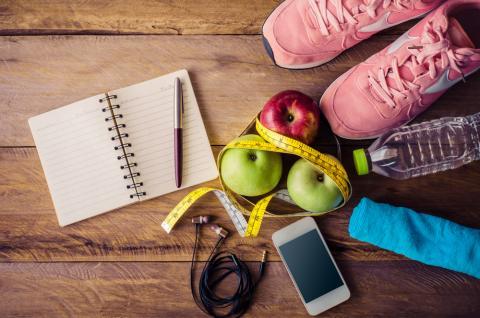
Whether your substance of choice is alcohol, nicotine, or prescription drugs, a dependency on any of these may lead to a significant impact on your emotional, mental, and physical health. For those of you on the road to recovery, or exploring ways to begin that journey, the future feels terrifyingly uncertain.
The best way to get (and stay!) clean is to explore and embrace new passions that support behavioral change.
Many times, our addictions become our “me time.” While tending to everyone else’s needs each day (such as taking care of the kids or pleasing your boss at work), your addiction becomes your sanctuary: a retreat from the real world.
Developing and following through with a plan to replace that “me time” with something that positively and productively serves the same purpose is crucial for maintaining your sobriety.
Without a replacement that provides an equal or better feeling than that drug did, your chance of relapse is much higher.
Relapse rates range from 60-90% in the first year of sobriety, according to the National Institute on Drug Abuse.
So how do you take charge and seek out the right replacement to keep you on the track to freedom? Start with the one choice that is guaranteed to boost your mood, aid in the reduction of withdrawal symptoms, help to speed up the detoxifying process: Exercise.
Benefits of Exercise:
- Exercise increases “feel good” chemical production in the brain
- Exercise decreases stress hormones and helps to relax us
- Exercise releases endorphins, which block the transmission of pain signals
The best part of incorporating exercise into your treatment plan is that it will help to improve brain function. Since addictions are technically considered brain disorders, exercise targets the part of the body that needs additional support the most.
Many drug rehabilitation centers across the country are providing their charges with quite a few options when it comes to using exercise as a tool for treatment. Just remember: to ensure that exercise becomes as comfortable and natural to you as any other daily activity, it’s best to start out small. Be practical and set realistic goals for yourself.
Mix Relaxation with Exercise
Keeping your mind focused on staying clean and sober is stressful, to say the least. With relapse around the corner, it's not easy to keep your mind empty.
So finding activities that offer de-stressing techniques and exercise all in one is a great way to spend your “me time.”
- Basic stretching is a great way to start the day, or to wind down at the end of the night. It helps to warm and soothe muscles and increase oxygen flow through the blood.
- Yoga has been found to help individuals reduce stress symptoms, decrease anxiety, increase sleep quality, and improve overall health.
Fun Exercise
There are many ways to make exercise fun and make you forget you’re even breaking a sweat. Take some time on the weekends to explore new activities.
Fun new activities to try out
- Exploring the outdoors with hiking, biking, or kayaking.
- Searching for treasure by geocaching
- Dancing up a sweat with classes offering Zumba, or learning to tango
No matter how you start off, as long as you’re moving, you’re doing it right. Once movement becomes the natural high of your daily routine, you can begin challenging yourself with more intense workouts and methods of exercise.
It doesn’t matter where you start; just keep your focus on exploring and embracing new passions that support a healthy mind, body and spirit and continue to practice every single day.
Exercise provides structure. Obtaining and maintaining sobriety is all about learning to re-structure your routines. Without a new routine, boredom and increased temptations set in and before you know it, you’re back on addiction autopilot again.
In an Argus Leader interview, recovering addict Joan Swenson of Sioux Falls says, “My whole life was spent trying to alter my state of being with some sort of substance. Now I can alter my state of being through exercise.” She adds, “Cravings can hijack your thought process, so focus is important for recovery.”
Replacing a sometimes sedentary life of addiction with a fast-paced active life can be brutally difficult. But freedom comes with a cost. If you are willing to put the effort into it, the payoff will be bigger and better than what you could ever imagine.








